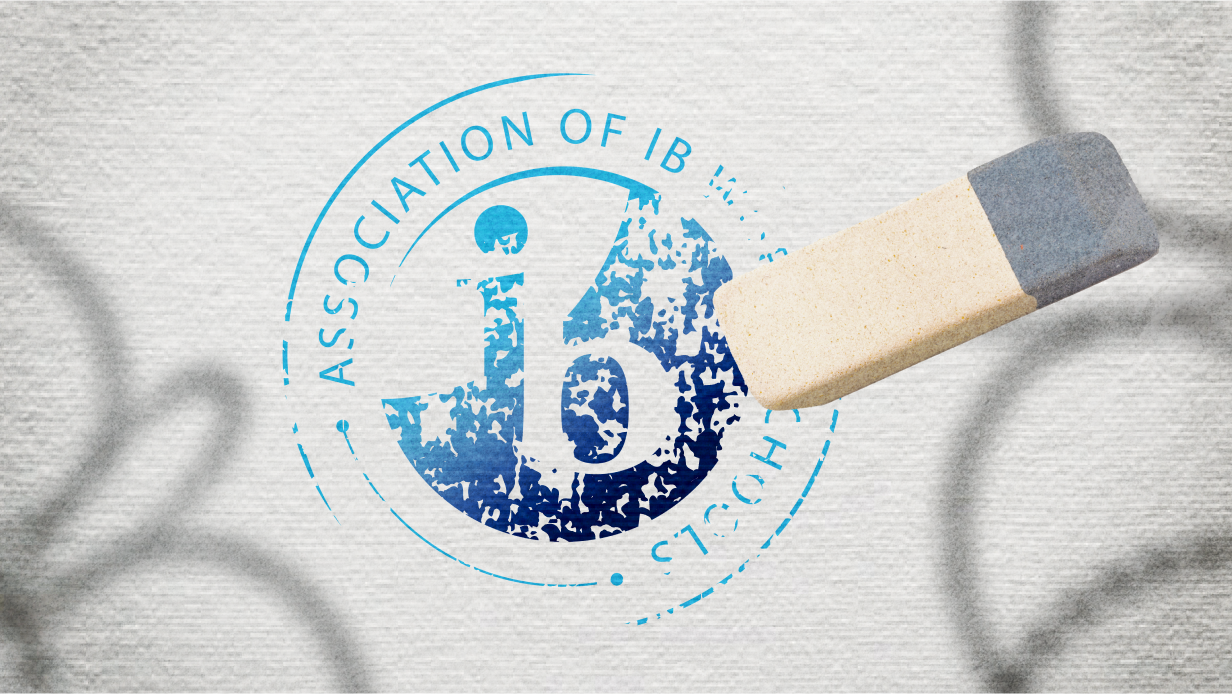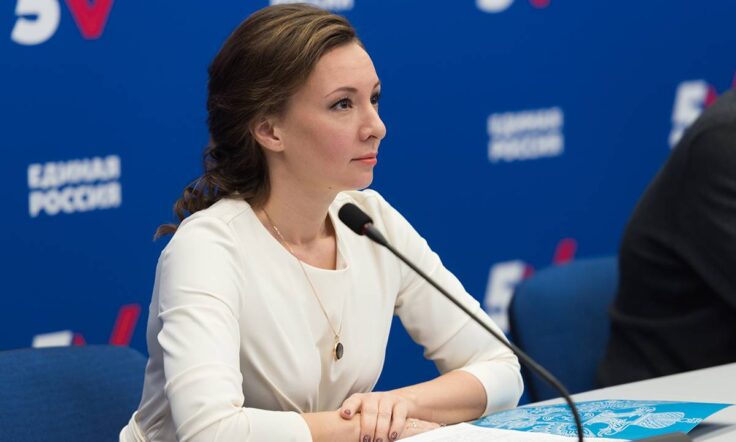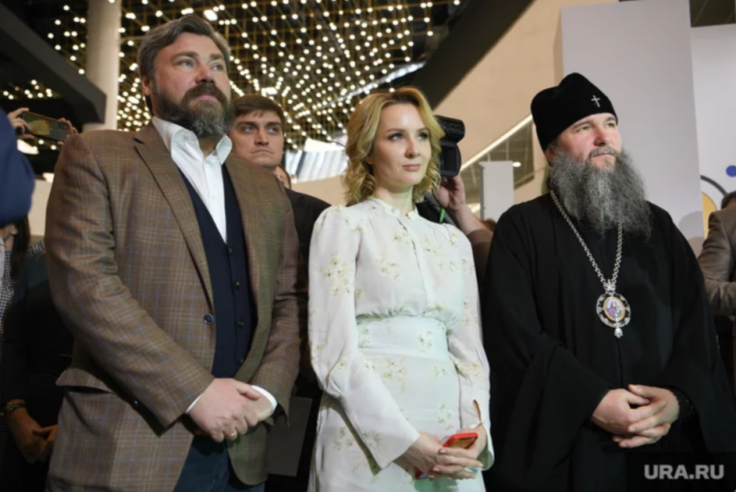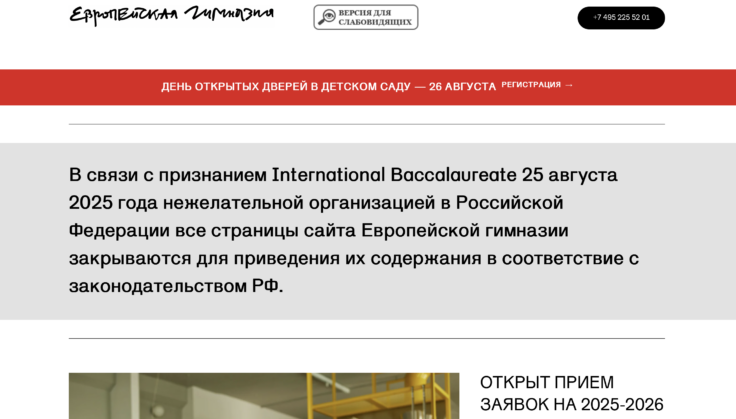
The push to have the International Baccalaureate (IB) designated as an “undesirable organization” was orchestrated by Anna Kuznetsova, Deputy Speaker of the State Duma (lower house of Russia’s parliament), likely enjoyed the backing of Konstantin Malofeev and his spouse, Maria Lvova-Belova. Lvova-Belova, who succeeded Kuznetsova as Children’s Ombudsman, has been subject to an International Criminal Court (ICC) arrest warrant since 2023 on allegations of unlawfully deporting Ukrainian children during Russia’s invasion. It was Kuznetsova who requested inspections of all Russian IB schools by regional prosecutor’s offices and Rosobrnadzor (the Federal Service for Supervision in Education and Science), resulting in administrative proceedings against several teachers and administrators. The parliamentary inquiry to the prosecutor’s office also concerned another respected international educational organization — the Council of International Schools (CIS) — but prosecutors have not yet determined its status. The extremely conservative “monarchist-patriotic faction” convinced the enforcement agencies that IB schools foster “global citizens” and “emphasize the protection of LGBTQ+ rights.” Most schools removed any mentions of IB within a day of the General Prosecutor’s Office decision and then sent statements to the Swiss office withdrawing from the organization.
Top news on scientists’ work and experiences during the war, along with videos and infographics — subscribe to the T-invariant Telegram channel to stay updated.
On August 26, the vast majority of Russian IB schools appealed to the Swiss-based International Baccalaureate organization with a request for urgent termination of all contracts and full withdrawal from the organization (the day before, the General Prosecutor’s Office of the Russian Federation declared the organization “undesirable”, outlawing any collaboration with it). As T-invariant has learned, the prosecutors’ decision followed an inquiry from State Duma Deputy Speaker Anna Kuznetsova. The inquiry concerned not only IB but also the Council of International Schools (CIS). Repressions against CIS have not yet followed, but schools accredited by it expect it to be declared “undesirable” in the very near future. “For Russian schools, this organization doesn’t play a significant role. If they join, they must meet its standards, but schools aren’t particularly eager to do so,” an educator who was involved in establishing the IB program in Russia told T-invariant. Among well-known schools, CIS accreditation is held by, for example, the Moscow Economic School and Brookes Moscow.

Anna Kuznetsova — who stylizes her name in her Telegram channel as Анна КуZнецоVа, co-opting the Latin “Z” and “V” as pro-war symbols echoing the tactical markings of Russia’s invading forces in Ukraine — initiated inspections in IB schools last academic year across all regions where they operate. Following the inspections in April 2025, she sent a request to recognize both organizations as “undesirable.” This information was confirmed by several sources in IB schools. “Inspections went on all year; there were tons of them. In ‘Letovo,’ there were several over the year,” a source told T-invariant, who in various years set up IB programs in several schools.
T-INVARIANT REFERENCE
Cost of IB/DP per Year (as of August 24, 2025)
- Letovo School: from 3,074,000 rubles to 3,714,400 rubles per year ($38.000–$46.000), depending on the type of boarding;
- British International School: 33,900 euros per year;
- Brookes School: from 3,425,000 rubles to 3,493,600 rubles per year (~$43.000);
- President School: from 2,700,000 rubles to 2,925,000 rubles per year (~$35.000), prices for the first and second years in DP differ;
- E.M. Primakov Gymnasium: 1,500,000 rubles per year ($19.000).
In her inquiries, Kuznetsova noted that “IB (an international organization) still certifies educational institutions based on principles of fostering ‘global citizens.’ And CIS, in its publications, emphasizes the protection of LGBTQ+ rights, which, to put it mildly, raises questions in the context of Russian legislation, namely directly contradicting it”. Kuznetsova explains her inquiries to the prosecutor’s office as “work aimed at implementing Presidential Decree No. 809 on strengthening spiritual and moral values.” According to her, “to sign contracts with any foreign organizations, a conclusion from the Ministry of Education is required, as regulated by federal legislation,” but, based on her data, no school since 2022 “has been issued permission to collaborate with such international organizations as IB and CIS.”
“This is the monarchist-patriotic lobby of Konstantin Malofeev and his circle,” believes one of T-invariant’s sources. Recall that Anna Kuznetsova and her successor as Children’s Ombudsman, Maria Lvova-Belova, are longtime colleagues and friends, both mothers of large families. Previously, they co-founded a charitable organization for social adaptation assistance Blagovest. In 2024, Konstantin Malofeev married Lvova-Belova (the day before, she divorced her husband, a priest, with whom she has five children). Kuznetsova’s husband, also a priest, serves in the church at the private Gymnasium of Saint Basil the Great, whose founder is Malofeev. Media outlets call him the “financier of the Russkiy Mir” (Russian World is the Kremlin’s concept of cultural and political hegemony over indefinitely broad surrounding territories) and he is also the founder of the far-right TV channel “Tsargrad.”

Kuznetsova commented on the news of the General Prosecutor’s Office decision in her Telegram channel with the words: “We achieved it through joint efforts.”
Another reason for the General Prosecutor’s Office decision, issued a week before the start of the school year, is the IB programs in the subjects History and Theory of Knowledge. T-invariant reviewed the current educational programs. According to IB teachers and administrators surveyed by the editors, “the key issue is the History subject.”
“On many historical topics, there’s a divergence from the [Russian authorities’] line. All sensitive events for law enforcement in the IB history program are viewed completely differently than in textbooks by Medinsky. And history is ideology now. How could the state tolerate this? That’s where the trap was sprung,” a T-invariant source explains. (Ex-Minister of Culture Vladimir Medinsky oversaw a new state-mandated textbook line explicitly designed to serve the Kremlin’s ideology.)
For instance, in the section “Authoritarian States of the 20th Century,” Stalin and Lenin are listed alongside Hitler, Mussolini, and Franco, and students are asked to choose one for a report. Overall, Russia, in both its Soviet and post-Soviet forms, receives minimal attention in the program. “The program is written dryly and diplomatically, but there’s still something to nitpick. Programs change every five years. The current program includes no mention of the special military operation (the official Russian term for the war in Ukraine), or even of Putin himself. Maybe that offended the prosecutors’ feelings,” the teacher muses.
The Theory of Knowledge program consists of three main parts, one of which is phrased as: “to foster international-mindedness and encourage students to become responsible and actively involved global citizens”. This is what first outraged Kuznetsova, and then the prosecutors. Significant attention in the program is given to international-mindedness that “encourages students to consider the diversity and richness of different perspectives, as well as exploring the interdependent influence of knowledge and culture.” (Source: Theory of knowledge guide [First assessment 2022]. Cardiff, Wales: International Baccalaureate Organization, 2022.) In fact, the program has no mention of anything literally related to LGBTQ+ topics.
So, what is valuable in these IB programs for Russian teenagers? The answer to this question was clearly articulated by E.M. Primakov Gymnasium (launched by Foreign Minister Sergei Lavrov and Moscow Region Governor Andrey Vorobyov, with Igor Sechin as one of the board of trustees members). As of August 24, 2025, the gymnasium’s website stated that “the Swiss program is based on the mission: to develop inquiring, knowledgeable, and caring young people who help create a better and more peaceful world through intercultural understanding and respect.”

But by August 25, the IB page on the gymnasium’s website was removed. One might wonder what could have gone wrong and where key representatives of the Putin elite might have overlooked something, especially since Vorobyov’s and Sechin’s children study or studied at the gymnasium. The answer has been articulated by the General Prosecutor’s Office: “shaping Russian youth according to Western templates, the essence of the education boils down to imposing their vision of historical processes, distorting well-known facts, anti-Russian propaganda, inciting ethnic hatred.”
Similarly, other leading Russian schools followed suit on August 25: within less than a day, they had removed all information about IB education from their websites. A few examples: President School in the ParkVille Zhukovka settlement (link), Khoroschool, founded by German Gref, the head of Sber, Russia’s largest state-owned bank (link), and Brookes Moscow School (link).

The European Gymnasium accompanied the hiding of pages with a disclaimer and hid all pages on the site except a shortened version of the homepage. The Skolkovo Gymnasium did similarly—but hid the entire site. Some schools are also removing information from social networks (for example, Khoroschool).
Can one see a conflict here between the Putin elite, who want the best education for their children, and Putin’s enforcement agencies? “I don’t think so. It’s just that now a single line is being implemented — and the IB line can no longer exist in the country,” believes a T-invariant source.
T-INVARIANT REFERENCE
According to the official IB website, 29 schools in Russia were offering its program by the time it was declared an “undesirable organization” on August 25, 2025. The undisputed leader in their concentration was Moscow and the Moscow Region. A smaller number of these schools were also located in St. Petersburg, Kaluga, Kazan, Alabuga, and Vladivostok. Back in 2015, Moscow alone had 27 public schools within the IB system, part of a separate city-funded support program. For several years, the Letovo School has been recognized as the best in the world based on average IB results, outperforming older private schools and boarding schools.
The E.M. Primakov Gymnasium on its website reported that it would fully support students in choosing “the best universities worldwide” for admission via IB and “organize meetings with a consultant.” “For admission to prestigious universities, an average of 35–42 points is required. For example, Harvard considers candidates only from 40 points, with 3 points for the core and at least 7–7–6 for higher-level subjects. To get into the London School of Economics, at least 38 points are needed, with 7–6–6 for profile subjects,” the school website stated.
As T-invariant previously reported, the educational community does not understand whether parents can recoup their considerable investment in their children’s education (we’re talking about millions of rubles — tens of thousands of dollars). “It is a critical moment for families of students in the two-year DP stage. (Diploma Programme — the third level of IB. — T-invariant). Parents have already paid for the first year and most likely made a deposit for the second one,” explains a T-invariant source who previously led IB programs in several schools.